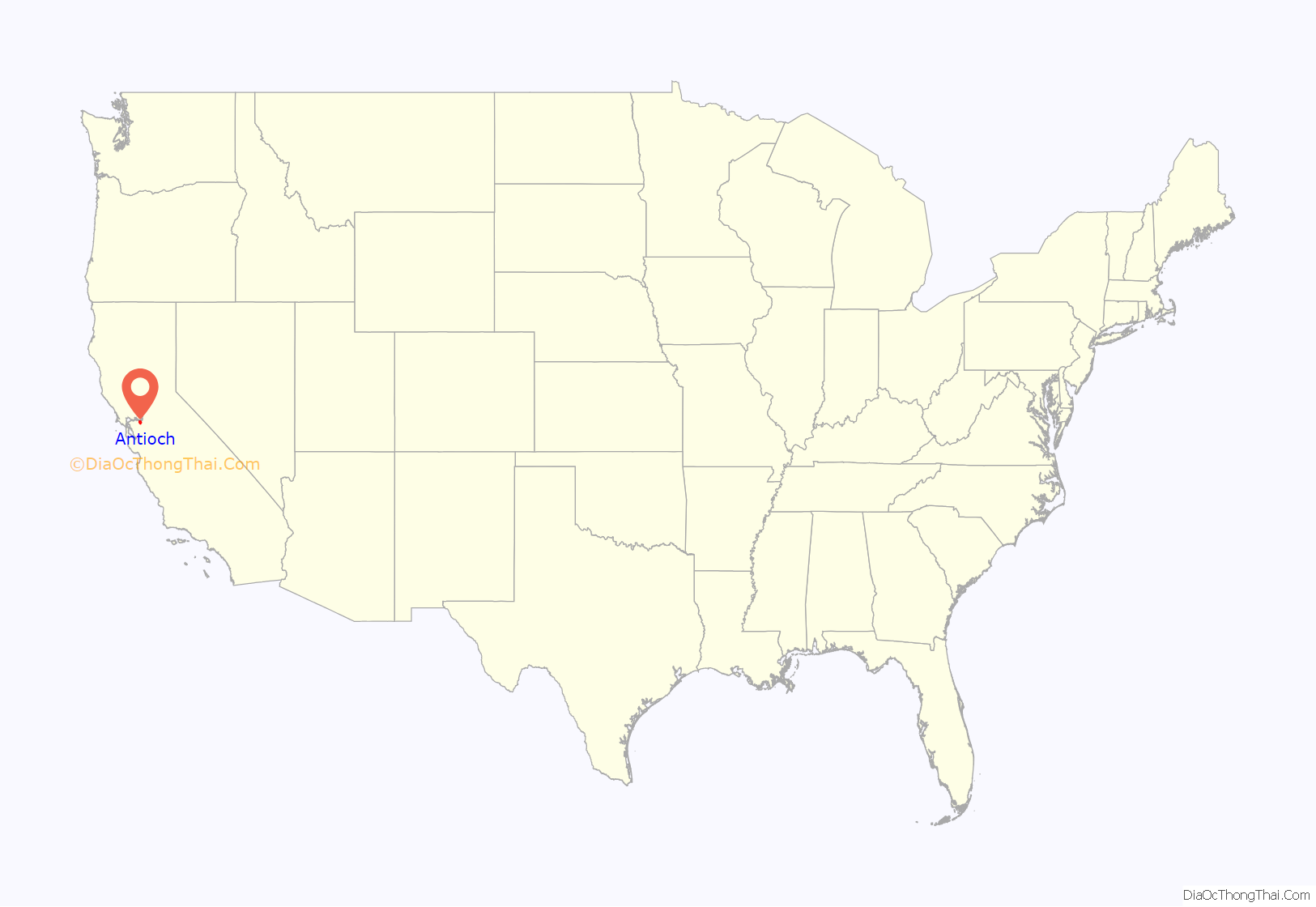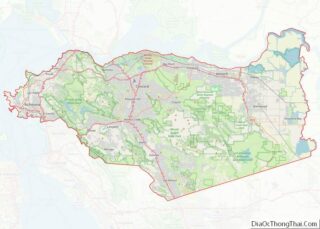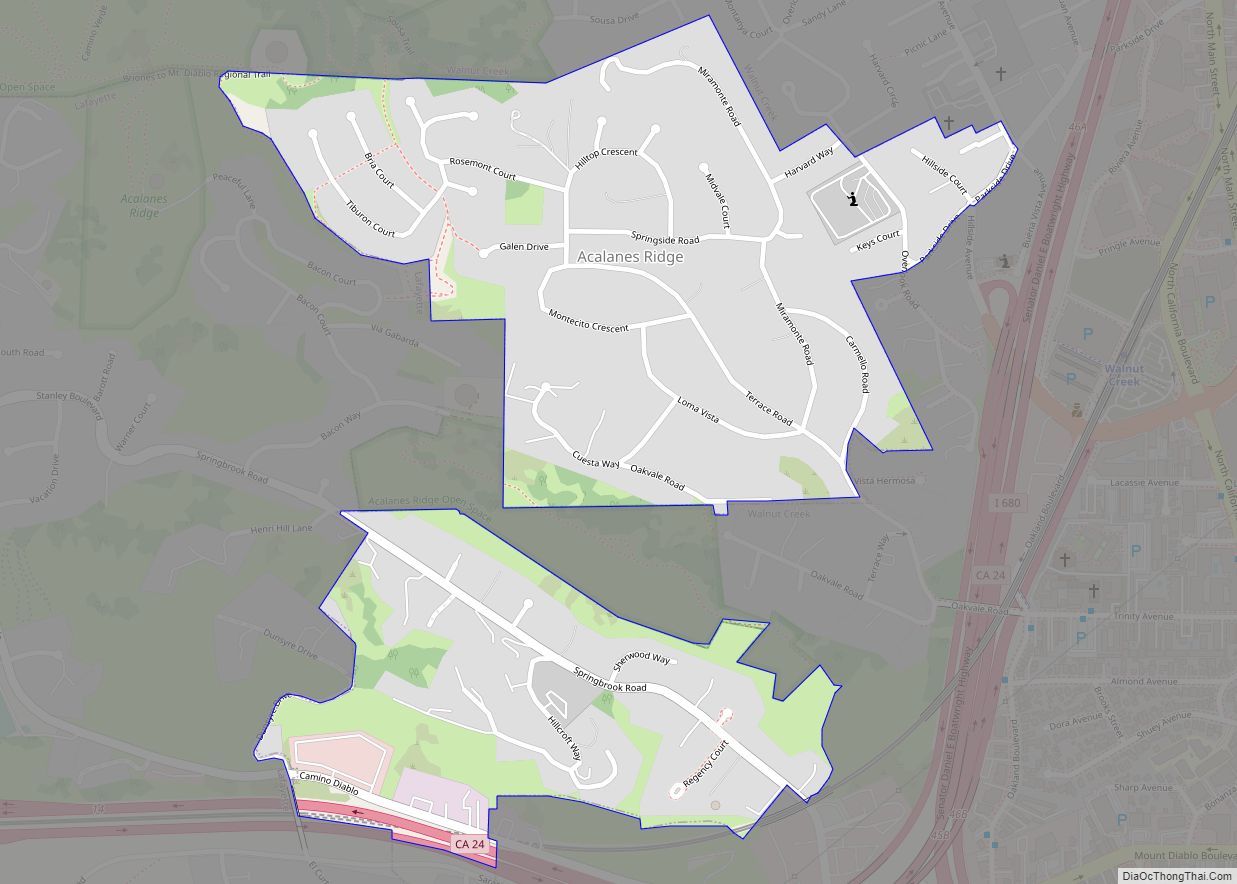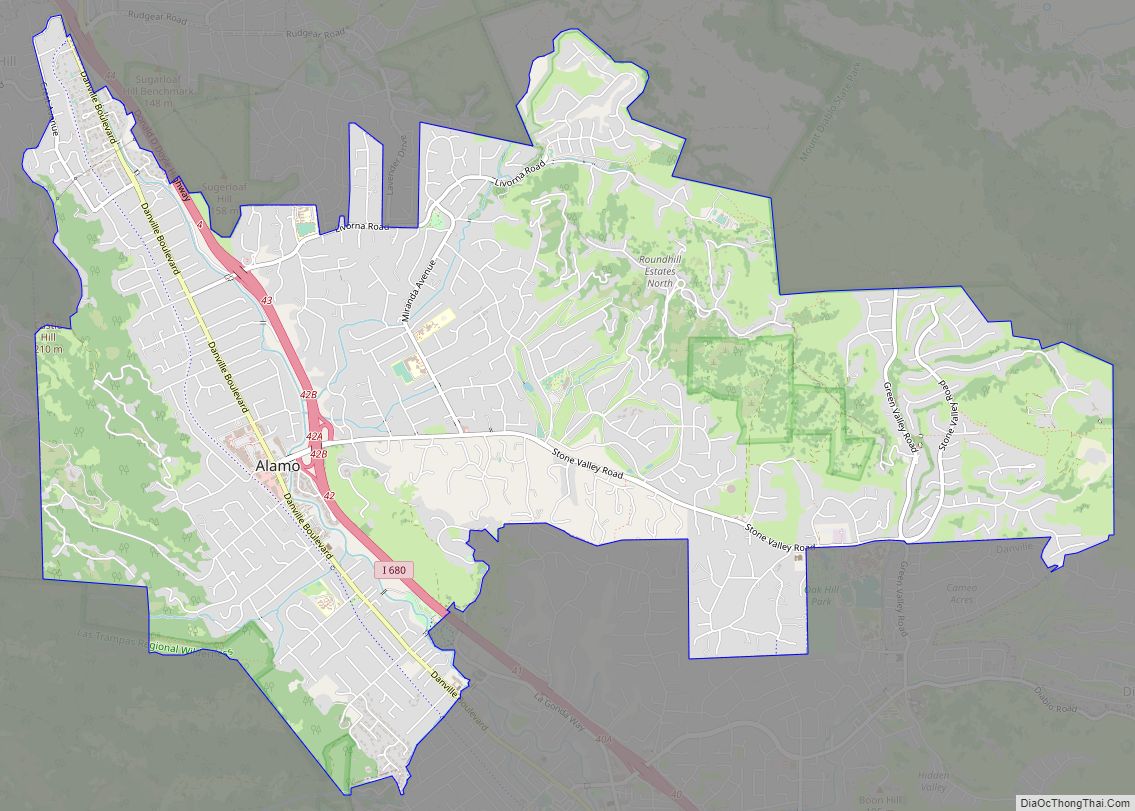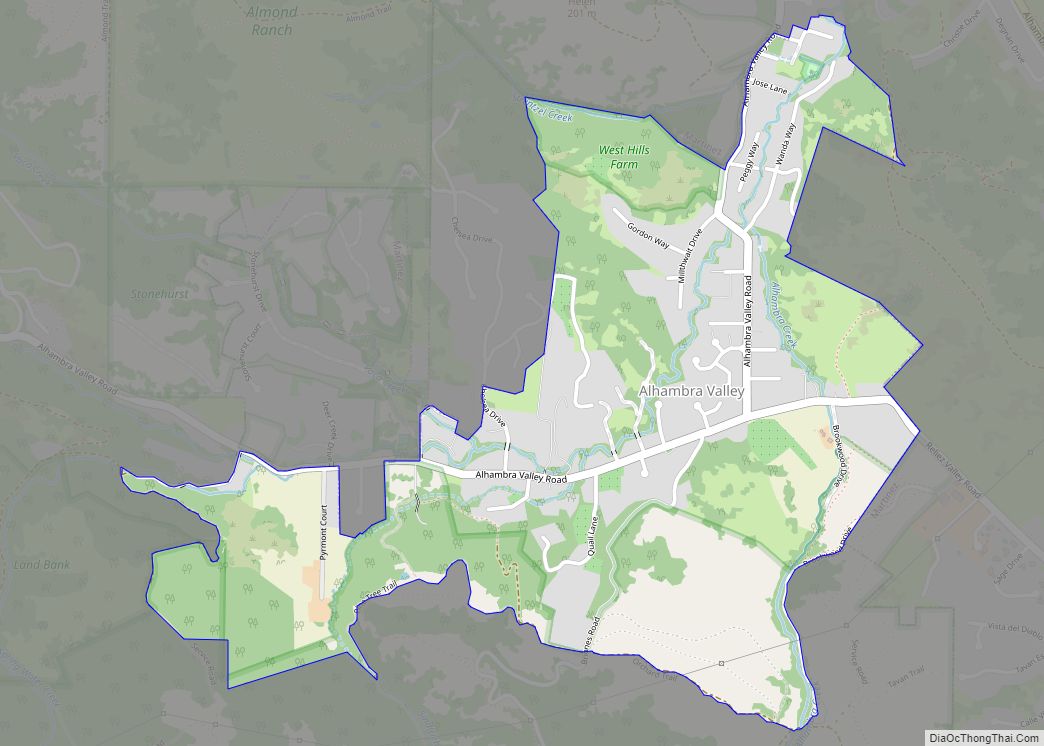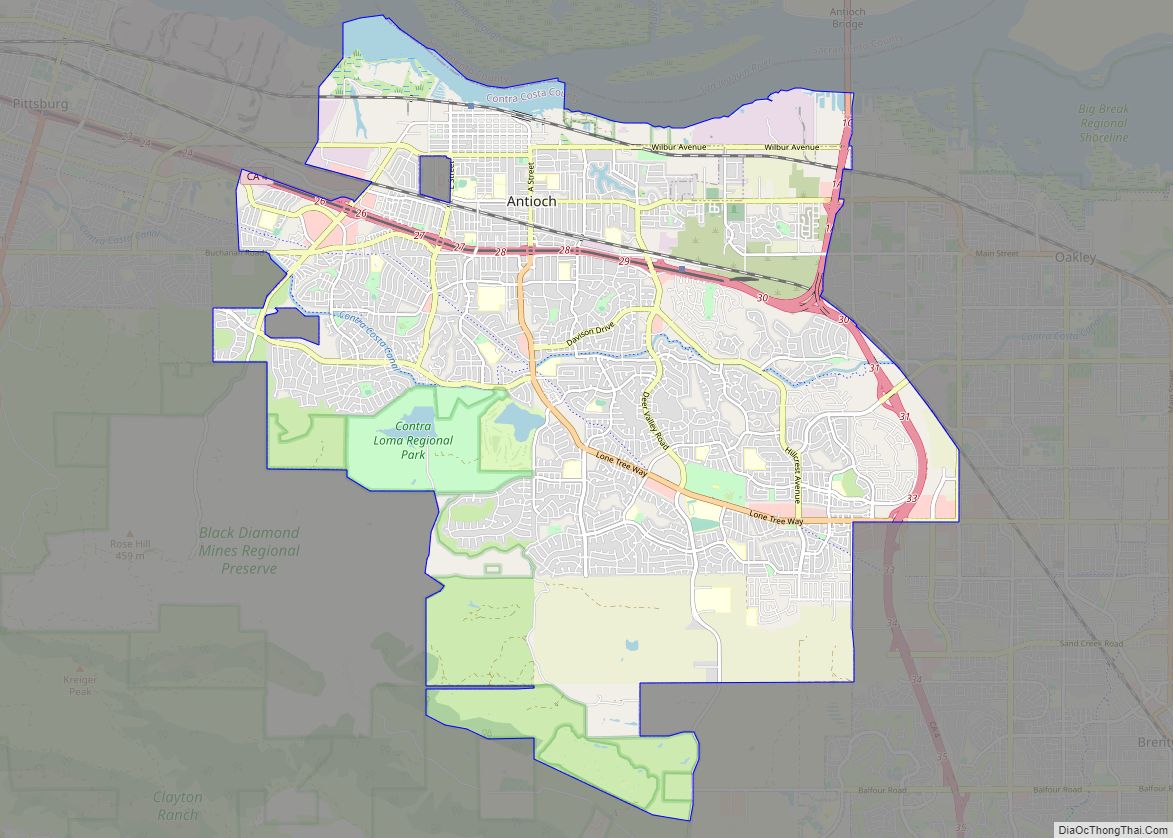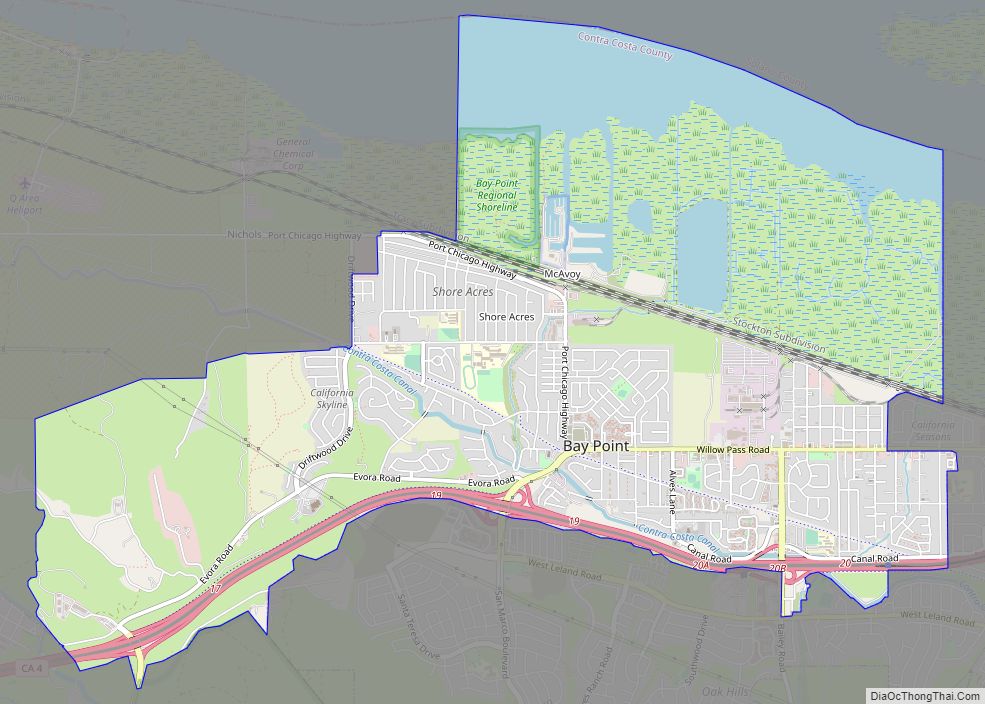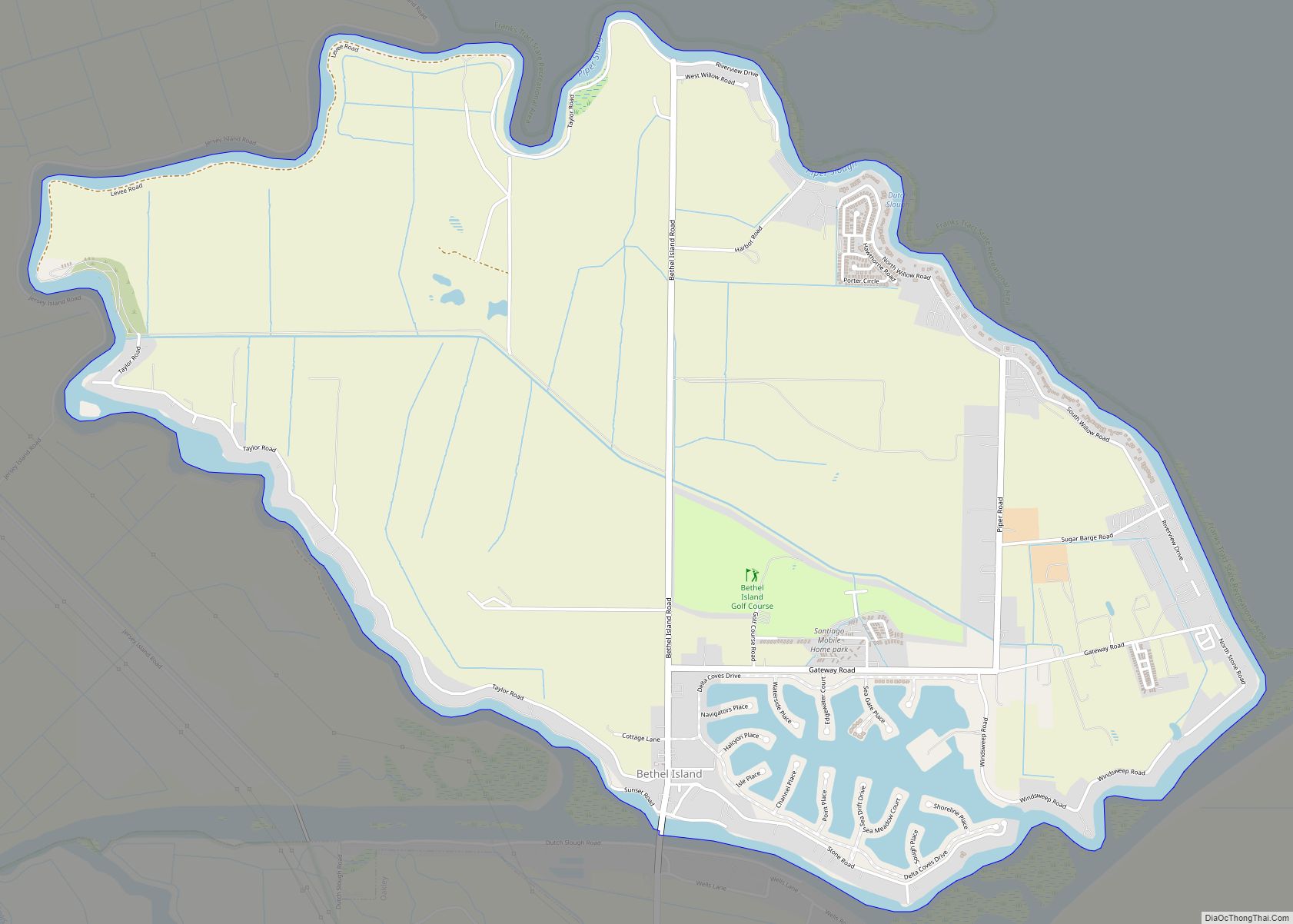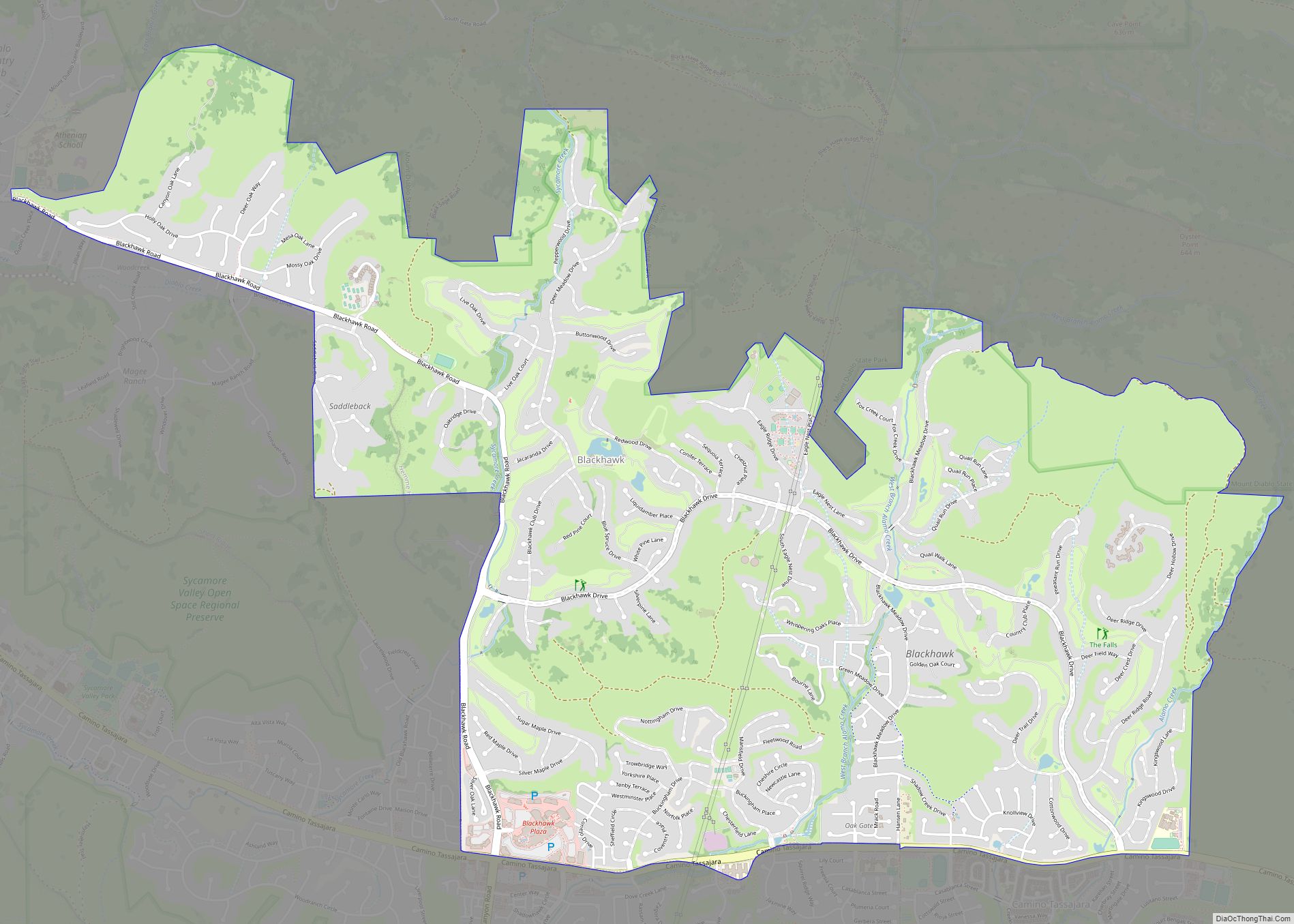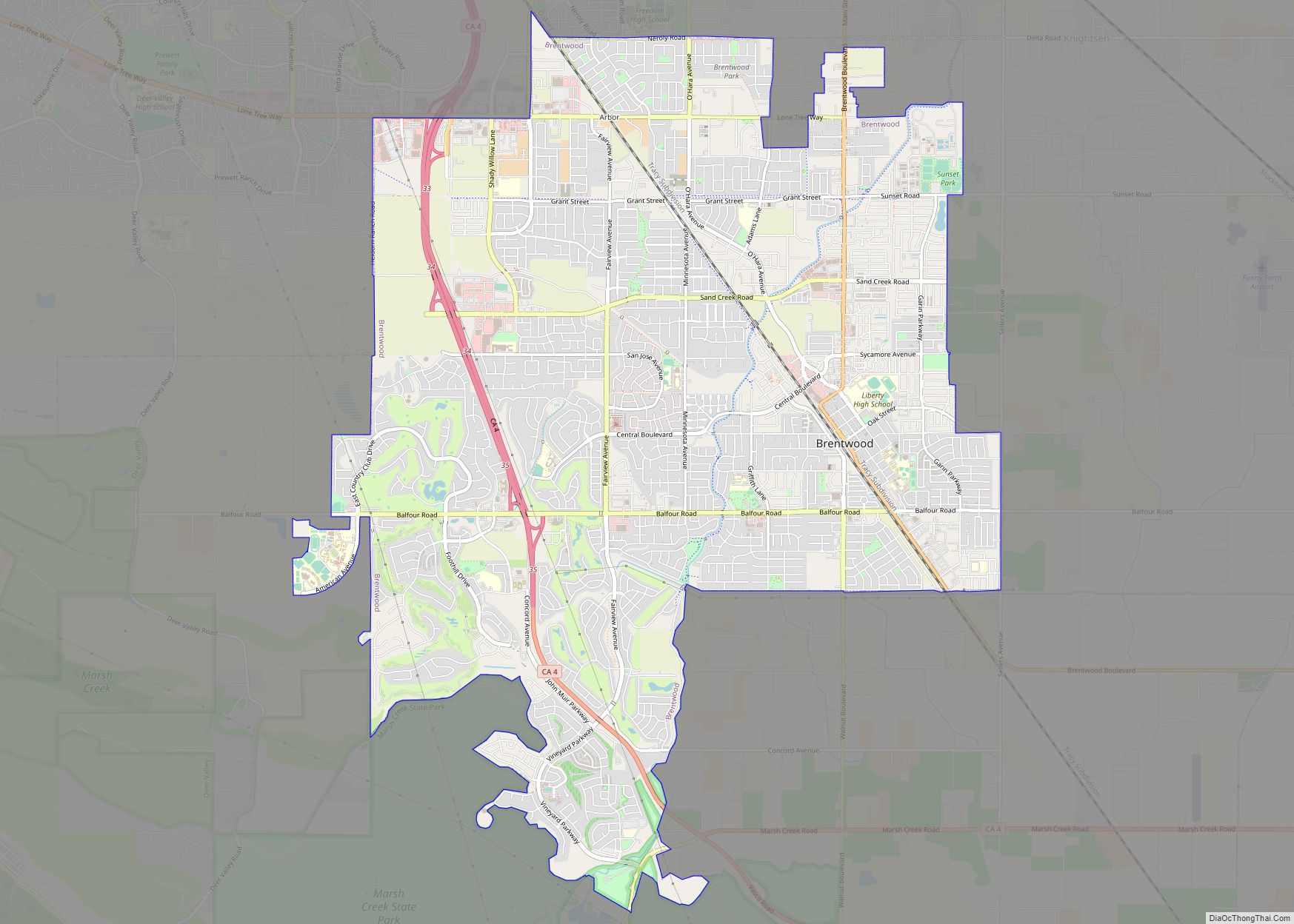Antioch is the third-largest city in Contra Costa County, California, United States. The city is located in the East Bay region of the San Francisco Bay Area along the Sacramento–San Joaquin River Delta. The city’s population was 115,291 at the 2020 census. The city has grown substantially more diverse since the 1970s.
| Name: | Antioch city |
|---|---|
| LSAD Code: | 25 |
| LSAD Description: | city (suffix) |
| State: | California |
| County: | Contra Costa County |
| Incorporated: | February 6, 1872 |
| Elevation: | 43 ft (13 m) |
| Land Area: | 29.17 sq mi (75.55 km²) |
| Water Area: | 0.77 sq mi (2.00 km²) 2.52% |
| Population Density: | 3,952.25/sq mi (1,525.96/km²) |
| ZIP code: | 94509, 94531 |
| Area code: | 925 |
| FIPS code: | 0602252 |
| Website: | www.ci.antioch.ca.us |
Online Interactive Map
Click on ![]() to view map in "full screen" mode.
to view map in "full screen" mode.
Antioch location map. Where is Antioch city?
History
Early history
Antioch is one of the oldest towns in the region. The town has been variously named East Antioch, Smith’s Landing, and Marsh’s Landing, prior to its current name.
In 1848, John Marsh, owner of Rancho Los Méganos, one of the largest ranches in California, built a landing on the San Joaquin River in what is now Antioch. It became known as Marsh’s Landing, and was the shipping point for the 17,000-acre (69 km) rancho. It included a pier extending well out into the river, enabling vessels drawing 15 feet (4.6 m) of water to tie up there in any season of the year. The landing also included a slaughterhouse, a smokehouse for curing hams, rodeo grounds, and a 1+1⁄2-story dwelling, embellished with fretwork, that was brought around the Horn to serve as a home for the mayordomo and his wife.
In 1849, twin brothers Rev. William Wiggins Smith and Rev. Joseph Horton Smith sailed from Boston, purchased land from John Marsh and founded a town slightly west of Marsh’s Landing, and named it Smith’s Landing. During the town picnic on July 4, 1851, William, the town’s new minister, persuaded the residents to change the name of the town to Antioch, for the biblical city of Antioch, “in as much as the first settlers were disciples of Christ, and one of them had died and was buried on the land, that it be given a Bible name in his honor, and suggested ‘Antioch’ (an ancient Syrian town where two important rivers meet and where the followers of Christ were first called Christians), and by united acclamation it was so christened.”
Around 1859, coal was discovered in several places in the hills south of Antioch, and coal mining formed the first substantial business apart from farming and dairying for the inhabitants of this community. This new industry resulted in the founding of the towns of Nortonville, Somersville, Stewartville, and Black Diamond (now Pittsburg), and added greatly to the economic activity of the Antioch area. The Empire Coal Company was formed by John C. Rouse and George Hawxhurst in 1876, which built a railroad that passed from Antioch toward the mines over what is now “F Street” (formerly Kimball Street). However, later on, both the mine and the railroad passed into the hands of the Belshaw brothers. The mines have long since ceased operation, and the railroad tracks have been dug up, though the building that served as the Antioch terminus of the railroad still stands on the corner of F Street and Fourth Street, and the grading and trestles still remain much as they were in those early days.
In 1863, a great excitement arose over the discovery of copper ore near Antioch. Smelting works were built at Antioch, and the ore fetched $15 to $25 per ton. The copper bubble eventually burst, to the dismay of the citizens, and petroleum was first drilled for near Antioch in 1865, but not enough oil was found to make a decent profit.
The Antioch Post Office was opened in 1851, closed in 1852, reopened in 1855, closed again in 1862, and has operated continuously since reopening in 1863. The city of Antioch was incorporated in 1872.
The Antioch Ledger was first issued on March 10, 1870. To commemorate the paper’s formation, a copy of its first issue has been framed and hangs over the desk of the present editor. The sole news item is a report with editorial comment on a women’s suffrage meeting that had just been held in the town. The Ledger later merged with the Contra Costa Times and printed its last issue in 2005. The Time’s weekly publication, the Antioch News, which is an expansion of the Brentwood News is published each Friday. The Antioch Press published its first issue in January 2001, direct mailing newspapers to all homes and businesses in the city twice monthly, and then weekly from September 2005 until the 2008 economic crash. It continued to publish and distribute only in racks and stacks throughout town until June 2012. It was then only published online until 2020 when it was combined with the Brentwood Press, Oakley Press and Discovery Bay Press into one paper, distributed in stacks and racks throughout the city as, The Press (www.thepress.net). The Antioch Herald (www.AntiochHerald.com) was first launched online in October 2010 and then expanded to print in May 2011, mailing to homes and businesses in Antioch each month. As of 2021, due to the impacts on businesses from the COVID-19-related government health orders, the “Herald” is only available online. A strictly online news source, EastCountyToday.net was launched in July 2012 covering Antioch and the other three cities and five unincorporated communities in eastern Contra Costa County.
The city’s historic Chinese community, which was forcibly segregated, was estimated to number in the hundreds in the late 1800s. The city’s early history included banning Chinese residents from walking the streets after sundown. In 1876, the Chinatown was burned down due to arson; the fire department refused to put out the fire. For nearly 100 years, virtually no Chinese lived in Antioch. The 1960 census showed that only 12 residents were Chinese.
Antioch is mainly a bedroom community, with most adults working in larger cities toward Oakland and San Francisco. The town has grown in the last 30 years, as the population of the Bay Area continues to grow, and real estate prices force families to move towards the outskirts of the Bay Area.
21st century
In January 2001, the Antioch Press was established by publisher and former Antioch Mayor Pro Tem and Councilman Allen Payton; he sold it in 2005 to the Brentwood Press and Publishing Company. Between 2001 and 2008, Gateway Generating Station was constructed in northern Antioch; the 530MW combined-cycle natural gas-fired power station, owned and operated by Pacific Gas & Electric, began providing power to customers in January 2009. In late 2009, Antioch received significant media attention following the news of kidnap victim Jaycee Lee Dugard being discovered near the city limits, and became the focus of several news stories regarding its 1,000 registered sex offenders. The Los Angeles Times ran a story titled “Sex offenders move to Antioch area ‘because they can’,” The Independent ran a story titled “How Jessica’s Law turned Antioch into a paedophile ghetto”, and CNN’s Anderson Cooper and Larry King both did similar stories for television; the latter with commentary by TV judge Judy Sheindlin. However, the Contra Costa Times and affiliated newspapers contradicted their claim: “Disturbing, if true. Only it’s not, according to a Bay Area News Group analysis of sex offender addresses and census data.” The report concluded that the 94509 zip code ranked only 39th in the state with 1.5 sex offenders per 1,000, with Oakland, San Francisco, San Jose, Bethel Island and Vallejo ZIP codes ranked in the top ten. Monte Rio ranked first with 4.5 per 1,000.
The city was attempting in 2012 to annex an adjacent 678-acre area of unincorporated land, which includes a GenOn Energy 760-megawatt power plant, to include the plant within city limits. In October 2010, Allen Payton returned to the news business and established the Antioch Herald, first online, then in May 2011 he began publishing a monthly print edition.
Increasingly tied to the greater economy of the San Francisco Bay Area, a Bay Area Rapid Transit (BART) station opened in the city in May 2018.
Mayor Lamar Thorpe announced on April 14, 2021, that the city would establish a Chinatown historic district in the downtown and acknowledge the city’s racist past.
Antioch Road Map
Antioch city Satellite Map
Geography
Antioch is located along the San Joaquin River–Stockton Deepwater Shipping Channel at the western end of the San Joaquin–Sacramento River Delta.
According to the United States Census Bureau, the city has a total area of 29.1 square miles (75 km), of which 28.3 square miles (73 km) is land and 0.7 square miles (1.8 km), comprising 2.52%, is water.
Climate
Antioch has a semi-arid climate (Köppen climate classification: BSk) with hot, dry summers, and mild winters with modest rainfall. There is a considerably higher degree of diurnal temperature variation in the summer than in the winter.
See also
Map of California State and its subdivision:- Alameda
- Alpine
- Amador
- Butte
- Calaveras
- Colusa
- Contra Costa
- Del Norte
- El Dorado
- Fresno
- Glenn
- Humboldt
- Imperial
- Inyo
- Kern
- Kings
- Lake
- Lassen
- Los Angeles
- Madera
- Marin
- Mariposa
- Mendocino
- Merced
- Modoc
- Mono
- Monterey
- Napa
- Nevada
- Orange
- Placer
- Plumas
- Riverside
- Sacramento
- San Benito
- San Bernardino
- San Diego
- San Francisco
- San Joaquin
- San Luis Obispo
- San Mateo
- Santa Barbara
- Santa Clara
- Santa Cruz
- Shasta
- Sierra
- Siskiyou
- Solano
- Sonoma
- Stanislaus
- Sutter
- Tehama
- Trinity
- Tulare
- Tuolumne
- Ventura
- Yolo
- Yuba
- Alabama
- Alaska
- Arizona
- Arkansas
- California
- Colorado
- Connecticut
- Delaware
- District of Columbia
- Florida
- Georgia
- Hawaii
- Idaho
- Illinois
- Indiana
- Iowa
- Kansas
- Kentucky
- Louisiana
- Maine
- Maryland
- Massachusetts
- Michigan
- Minnesota
- Mississippi
- Missouri
- Montana
- Nebraska
- Nevada
- New Hampshire
- New Jersey
- New Mexico
- New York
- North Carolina
- North Dakota
- Ohio
- Oklahoma
- Oregon
- Pennsylvania
- Rhode Island
- South Carolina
- South Dakota
- Tennessee
- Texas
- Utah
- Vermont
- Virginia
- Washington
- West Virginia
- Wisconsin
- Wyoming
